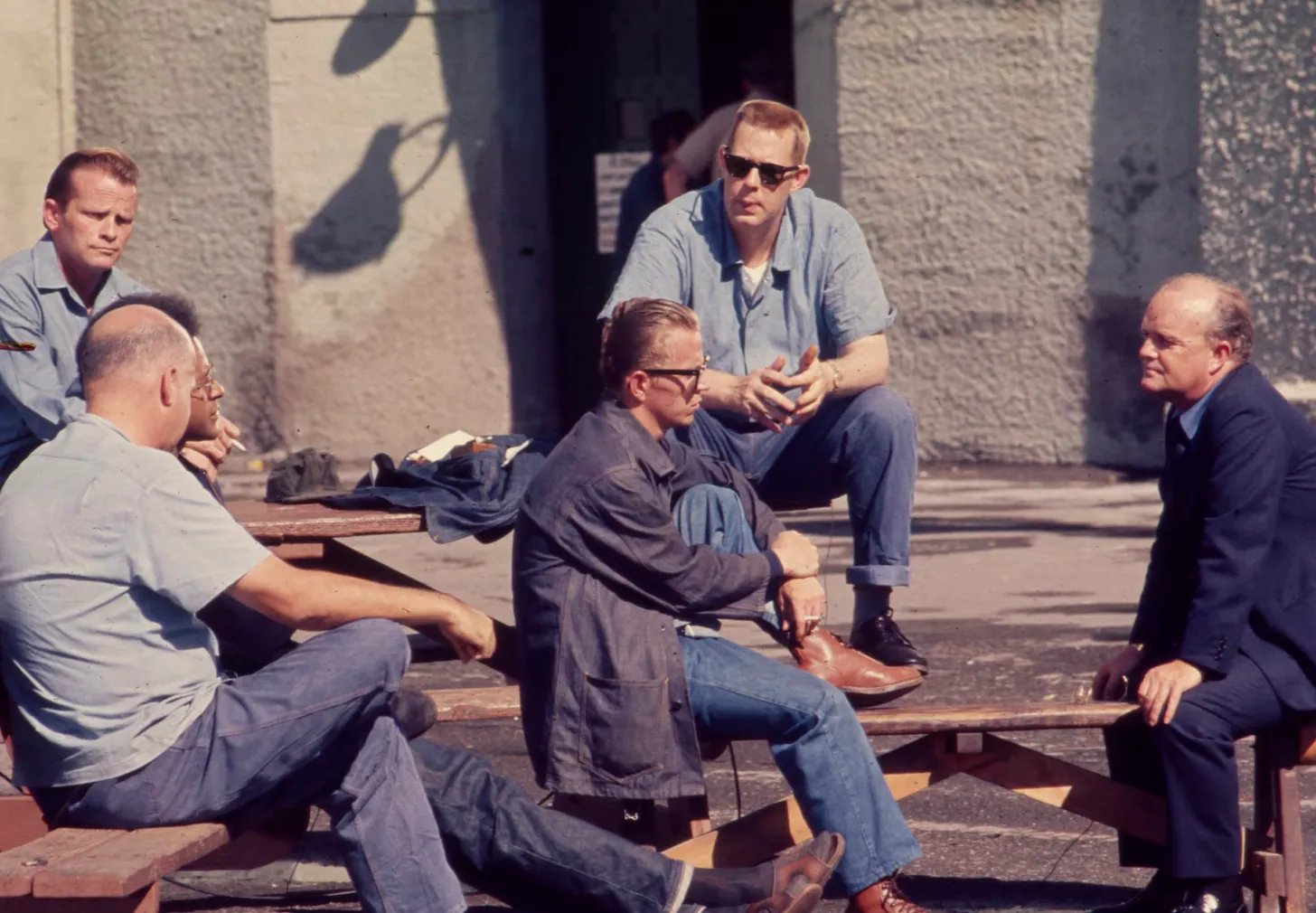The Crime Lady: Contending With Capote
Dear TCL Readers,
I hope your 2023 is starting well. Mine is, thank goodness, after a last-few-weeks-of-2022 best forgotten (a second bout of Covid is decidedly not recommended.) Among the changes I’m trying to make is to send out newsletters more regularly, since I fell out of that habit in a big way last year. It helps that I have some new work to talk about, including a new essay on Truman Capote published at The Atlantic over the weekend.
Every crime writer has to contend in some way with Capote, since In Cold Blood, upon its syndication in the New Yorker and especially after its 1966 publication in book form, changed the parameters of what a work of true crime could accomplish, in substance and in style. But because a significant amount of the book was fictionalized, Capote raised yet more questions about the relationship between true crime and fiction and entertainment.
These are not new insights. But what has fascinated me for years is what Capote did after the wild success of In Cold Blood, and how he became something of a go-to criminal justice pundit, especially with respect to capital punishment. (The two links are to interviews with William F. Buckley and F. Lee Bailey, respectively.) He spent more than a year, between 1967 and 1968, interviewing prisoners housed at three different Death Rows, all for a documentary, Death Row U.S.A., that never saw the light of day (save for a single private theatrical showing) and is possibly moldering in an ABC-owned vault somewhere.
My essay details what happened when Capote met one of those prisoners, a triple murderer named Joseph Morse, at San Quentin (center of the above photograph), and how this led to a brief jail stint, one that helped catalyze Capote’s later catastrophic decline. It also explores the depth and breadth of his relationship to criminality, stretching all the way back to early childhood. Who else could have grown up in a small Alabama town, befriending two girls, one of whom became part of a serial-killer couple, the other Harper Lee?
I only wish I had had room to get into another of Capote’s crime projects, an aborted Washington Post column, “Houston Diary” covering Dean Corll’s serial murders and the trial of his accomplice Elmer Wayne Henley. When I learned that the New York Public Library had some material related to this project in the fall of 2021, I spent a day looking through these papers, left behind in a Santa Fe house after Capote’s tumultuous (and final) breakup with the banker John O’Shea in 1976. Among the papers was a scrapbook full of newspaper clippings about Corll, his accomplices, and the many, many victims of their horrific crimes. Here’s the front cover:
Every time I’m in archives I always pause to take in the enormity of what I’m doing, interacting with a writer’s thought processes and creative work at a granular level. But leafing through this scrapbook was among the stranger experiences I’ve had, partly because of the horror of the material, and mostly because I could sense Capote’s curiosity, and also his revulsion. It was too dark. It was too familiar. No wonder he bailed. But what was the cost of bailing, and of his porous relationship with truth?
All the thanks in the world to Gal Beckerman, who edited a beast of a first draft into the piece it should have been all along, and to Maya Chung for exemplary factchecking.
**
The first Crime & Mystery column of 2023 appeared in this past weekend’s Book Review, featuring new books by Jane Harper, Thomas Perry, Iris Yamashita, Maurizio di Giovanni, and Jordan Harper (Everybody Knows is as good as everyone says, and then some.) Going forward the column will appear monthly, rather than twice-a-month. There are many reasons for this change, including scheduling and print space and making sure all the genre columns get equal play. But from my standpoint, it turns out reviewing eight books a month is hard! And having experienced column burnout in the past, I did not want it to repeat itself. A more sustainable schedule also means more time for other projects, some of which are already in the works. I’m excited to say more at the appropriate times.
Finished copies of the paperback for Scoundrel also arrived recently. New cover, new subtitle, and a February 7 publication date. I would have liked it to be Edgar-nominated (Fact Crime was a stacked category, I’ve read and enjoyed all of the finalists) but was pleased the book made some best-of lists from Time, Esquire, NPR, CBC, Slate, and CrimeReads.
Also recently: spoke about my work and Scoundrel on the Ridgewood, NJ library podcast, “A Bend in the Road”; and appeared alongside many luminaries on a CBC documentary on the state of true crime, which also encapsulates what you can expect from my next anthology, Evidence of Things Seen, which will be out in early July.
Finally: here’s how to support the HarperCollins Union, still on strike.
Until next time, I remain,
The Crime Lady


